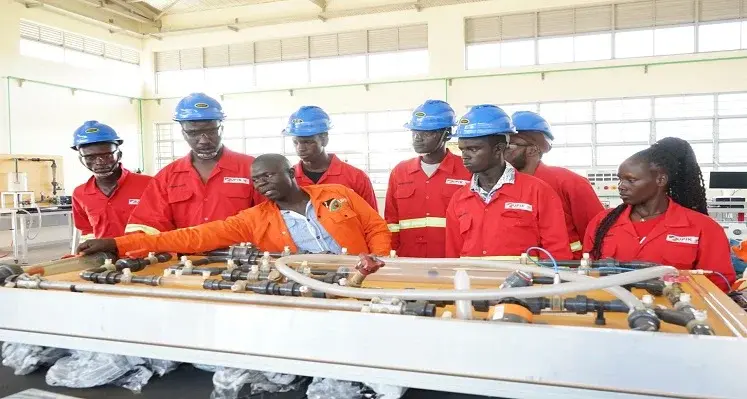The Petroleum Authority of Uganda (PAU) organised the first Sectoral Linkages Conference in Kampala, drawing spotlight on investment opportunities emerging from the interconnections between the oil and gas industry and various economic sectors such as agriculture, education, healthcare, transportation, finance, ICT, and tourism, among others
“This contribution includes directly financing capital investments, human capital through skilling, supporting the private sector by creating jobs, building and maintaining infrastructural development, and ensuring that the oil resources are well-managed for all Ugandans,” said Pamela K Mbabazi, executive chair of the National Planning Authority (NPA).
The significance of these sectoral linkages in aligning with Uganda's fourth National Development Plan (NDP IV), slated for implementation in the upcoming fiscal year 2024/25, was also recognised by the NPA.
Ernest Rubondo, executive director of the Petroleum Authority of Uganda, said, “In line with the common saying that if you want to go far, you go with others, the development of Uganda’s oil and gas sector needs to go hand in hand with the other sectors of the economy so that it goes far, especially in achieving the desired goal of using the country’s oil and gas resources to create lasting value for society.”
Irene Bateebe, permanent secretary of the Ministry of Energy and Mineral Development, said, “Several countries including the UAE and Norway among others leveraged the oil and gas sector to develop their other sectors.”
Oil and gas: a significant investment trajectory
The development of oil and gas infrastructure, including production facilities, refineries, pipelines, and associated amenities, represents a significant investment trajectory poised to catalyse Uganda's economic diversification agenda.
Embracing responsible practices and drawing from international best practices, Uganda seeks to mitigate risks associated with oil and gas development while maximising socio-economic benefits for its populace.
Valerie Marcel, executive director and founder of New Producers for Sustainable Energy, provided insights into global precedents, citing examples from countries like Ghana, Guyana, and Ecuador. Marcel underscored the challenges and opportunities facing emerging oil producers in navigating the evolving energy landscape, emphasising the imperative of leveraging sectoral linkages for sustainable development.
PAU’s Ali Ssekatawa said, “The first baby steps include bringing together industry captains for a conversation, and benchmarking with countries such as Ghana, Nigeria, Canada and Norway, which have been producing oil. This benchmarking revealed that we can benefit from backward and forward linkages such as education, health, agriculture, and land use planning, among others.”
He added that the PAU commissioned research studies to identify the opportunities sectoral linkages present, thanking the private and public sector partners who participated in these studies. He stressed that taking these findings forward will require a proper structure because they cut across several issues such as budgeting, national planning, and programming.
“Uganda has all the ingredients to succeed,” Mr Gunnar Sjøgren, the Project Director International Cooperation, Norwegian Offshore Directorate remarked during the conference. This is because responsible bodies such as the Energy Ministry and the PAU have taken steps to learn from the mistakes of other oil producers and put measures in place to avoid them.
“We have a team of scientists, economists and so on who are tasked with finding local solutions to risks such as the ‘Dutch disease’ and ‘oil curse,” Mr Ssekatawa said concerning how Uganda is addressing the risks and challenges identified from old oil producers as it exploits its oil and gas.
The development of the facilities to produce the discovered oil and gas resources in the Tilenga and Kingfisher projects will require about US$6-8bn. The commercialisation infrastructure includes the refinery at Kabaale, Hoima at a cost of about US$4bn and a crude oil export pipeline from Hoima, Kabaale to Tanga estimated to cost US$5bn.








